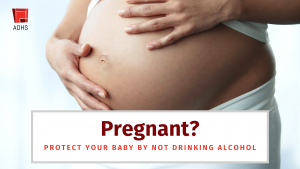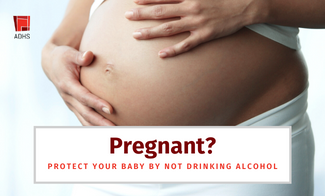 Those who are pregnant or planning to become pregnant share the goal of having a healthy baby. In addition to getting proper prenatal care, there’s one more step prospective parents can take: Avoid drinking alcohol while pregnant or trying to become pregnant.
Those who are pregnant or planning to become pregnant share the goal of having a healthy baby. In addition to getting proper prenatal care, there’s one more step prospective parents can take: Avoid drinking alcohol while pregnant or trying to become pregnant.
September is Fetal Alcohol Spectrum Disorders Month and Sept. 9 — the 9th day of the 9th month — is set aside to share the message that Fetal Alcohol Spectrum Disorders are 100% preventable.
It’s important to know that no level of alcohol use and no type of alcohol, including beer, wine, and liquor, is safe for the child. Alcohol use, even before a woman knows she’s pregnant, can lead to birth defects and developmental disabilities. It also can cause a miscarriage, stillbirth, or premature birth.
Alcohol use in the first three months of pregnancy can cause the baby to have abnormal facial features. Growth and central nervous system problems, including low birthweight and behavioral issues, can develop from alcohol use anytime during pregnancy. The baby’s brain is developing throughout pregnancy and can be affected by exposure to alcohol at any time.
It is never too late to stop alcohol use during pregnancy. Stopping alcohol use will improve your baby’s health and well-being.
Earlier this year, researchers from the Centers for Disease Control and Prevention (CDC) found that about 14% of pregnant people reported drinking alcohol within the past 30 days, and 5% reported binge drinking (four or more drinks in one setting). Those most likely to report alcohol use during the pregnancy were ages 35 to 49 and those who are college educated, employed, or unmarried.
Others can help by not drinking around the pregnant person. Women report that the drinking behavior of their partners, family members, and friends are strong influences on their alcohol consumption, according to the CDC.
For more information on effective CDC Prevention Interventions, please visit cdc.gov/fasd.










